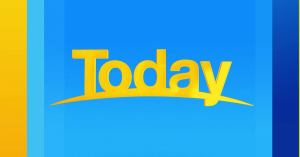
The U.S. Ninth Circuit Court of Appeals issued an opinion on July 5th which found, in part, that sharing passwords is a prosecutable crime under the Computer Fraud and Abuse Act (CFAA). According to a dissenting opinion on the case, the decision makes millions of people who share passwords on services such as Netflix and HBO Go into “unwitting federal criminals,” according to Fortune.
The decision came in the wake of a case involving a disgruntled employee, David Nosal, who formerly worked for executive search firm Korn/Ferry International. Nosal left the headhunter firm in 2004 after being passed over for a promotion. He stayed on as a contractor but was planning on simultaneously launching a competing search firm alongside several co-conspirators. Fortune reported that although all of the conspirator’s computer access was revoked by the company, they continued to use the Korn/Ferry candidate database known as Searcher. They gained access to the database using the login information for Nosal’s former assistant, who was still with the firm.
Videos by PopCulture.com
David Nosal was subsequently charged with conspiracy, theft of trade secrets and three counts under CFAA. He was sentenced to “prison time, probation, and nearly $900,000 in restitution and fines.” His conviction was based around the CFAA clause that criminalizes anyone who “knowingly and with intent to defraud, accesses a protected computer without authorization.” This particular clause has even been used to support many cases that fall short of qualifying as actual systems tampering.
In regard to CFFA clauses like this, The New Yorker‘s Tim Wu has described the CFAA as “the worst law in technology.” Ninth Circuit Judge, Stephen Reinhardt, agreed with Wu’s dissenting opinion and interpretation of the law. Reinhardt mentioned that he had no disagreement with Nosal’s convictions on trade secret violations, but mentioned the new decision also makes “consensual password sharing” a prosecutable offense.
Reinhardt also noted that the court’s recent opinion “loses sight of the anti-hacking purpose of the CFAA, and…threatens to criminalize all sorts of innocuous conduct engaged in daily by ordinary citizens.”
Do you agree with the Ninth Circuit Court of Appeals that sharing Netflix or HBO Go passwords should be illegal?








